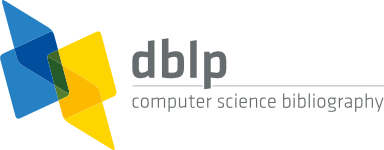| 2023 | |
| [1] | , "Value-based Software Engineering: A Systematic Mapping Study", In e-Informatica Software Engineering Journal, vol. 17, no. 1, pp. 230106, 2023.
DOI: 10.37190/e-Inf230106. Download article (PDF)Get article BibTeX file |
Authors
Norsaremah Salleh, Emilia Mendes, Fabiana Mendes, Charitha Dissanayake Lekamlage, Kai Petersen
Abstract
Background: Integrating value-oriented perspectives into the principles and practices of software engineering is fundamental to ensure that software development activities address key stakeholders’ views and also balance short-and long-term goals. This is put forward in the discipline of value-based software engineering (VBSE)
Aim: This study aims to provide an overview of VBSE with respect to the research efforts that have been put into VBSE.
Method: We conducted a systematic mapping study to classify evidence on value definitions, studies’ quality, VBSE principles and practices, research topics, methods, types, contribution facets, and publication venues.
Results: From 143 studies we found that the term “value” has not been clearly defined in many studies. VB Requirements Engineering and VB Planning and Control were the two principles mostly investigated, whereas VB Risk Management and VB People Management were the least researched. Most studies showed very good reporting and relevance quality, acceptable credibility, but poor in rigour. Main research topic was Software Requirements and case study research was the method used the most. The majority of studies contribute towards methods and processes, while very few studies have proposed metrics and tools.
Conclusion: We highlighted the research gaps and implications for research and practice to support VBSE.
Keywords
systematic mapping, value-based software engineering, VBSE
References
1. B. Boehm, “Value-based software engineering: reinventing,” ACM SIGSOFT Software Engineering Notes, Vol. 28, No. 2, Mar. 2003, p. 3. [Online]. https://doi.org/10.1145/638750.638775
2. S. Biffl, A. Aurum, B. Boehm, H. Erdogmus, and P. Grünbacher, Eds., Value-Based Software Engineering. Berlin, Heidelberg: Springer, 2006. [Online]. https://doi.org/10.1007/3-540-29263-2_1
3. M.W. Dictionary, “Definition of VALUE,” 2022, accessed April 2022. [Online]. https://www.merriam-webster.com/dictionary/value
4. E. Mendes, B. Turhan, P. Rodríguez, and V. Freitas, “Estimating the Value of Decisions Relating to Managing and Developing Software-intensive Products and Projects,” in Proceedings of the 11th International Conference on Predictive Models and Data Analytics in Software Engineering, PROMISE ’15. New York, NY, USA: Association for Computing Machinery, Oct. 2015, pp. 1–4. [Online]. https://doi.org/10.1145/2810146.2810154
5. N. Kukreja, B. Boehm, S.S. Payyavula, and S. Padmanabhuni, “Selecting an appropriate framework for value-based requirements prioritization,” in 2012 20th IEEE International Requirements Engineering Conference (RE), 2012, pp. 303–308.
6. D. Port, J. Wilf, M. Diep, C. Seaman, and M. Feather, “Developing a Value-Based Methodology for Satisfying NASA Software Assurance Requirements,” in 2016 49th Hawaii International Conference on System Sciences (HICSS), Jan. 2016, pp. 5642–5651, iSSN: 1530-1605.
7. T. Dybå and T. Dingsøyr, “Strength of evidence in systematic reviews in software engineering,” in Proceedings of the Second ACM-IEEE international symposium on Empirical software engineering and measurement, ESEM ’08. New York, NY, USA: Association for Computing Machinery, 2008, p. 178–187. [Online]. https://doi.org/10.1145/1414004.1414034
8. J. Favaro, “When the pursuit of quality destroys value [software development],” IEEE Software, Vol. 13, No. 3, 1996, pp. 93–95.
9. B.W. Boehm, Value-Based Software Engineering: Overview and Agenda. Berlin, Heidelberg: Springer, 2006, ch. 1, pp. 3–14.
10. B.W. Boehm and A. Jain, An Initial Theory of Value-Based Software Engineering. Berlin, Heidelberg: Springer, 2006, ch. 2, pp. 15–37.
11. M. Khurum, T. Gorschek, and M. Wilson, “The software value map—an exhaustive collection of value aspects for the development of software intensive products,” Journal of software: Evolution and Process, Vol. 25, No. 7, 2013, pp. 711–741.
12. M.Z. Khan and M.N.A. Khan, “A Review of Value Based Software Engineering and its Impacts,” International Journal of Advanced Science and Technology, Vol. 75, 2015, pp. 33–42.
13. N. Salleh, F. Mendes, and E. Mendes, “A Systematic Mapping Study of Value-Based Software Engineering,” in 2019 45th Euromicro Conference on Software Engineering and Advanced Applications (SEAA), Aug. 2019, pp. 404–411.
14. N. Jan and M. Ibrar, Systematic Mapping of Value-based Software Engineering – A Systematic Review of Value-based Requirements Engineering, Ph.D. dissertation, Blekinge Institute of Technology, Sweden, 2010. [Online]. https://www.diva-portal.org/smash/record.jsf?pid=diva2∖%3A832388&dswid=6160
15. K. Petersen, R. Feldt, M. Shahid, and M. Mattsson, “Systematic mapping studies in software engineering,” in 12th International Conference on Evaluation and Assessment in Software Engineering (EASE) 12, 2008, pp. 1–10.
16. B. Kitchenham and S. Charters, “Guidelines for performing systematic literature reviews in software engineering,” Technical Report EBSE 2007-001, Keele University and Durham University Joint Report, Tech. Rep., 2007.
17. B. Kitchenham, L. Madeyski, and D. Budgen, “Segress: Software engineering guidelines for reporting secondary studies,” IEEE Transactions on Software Engineering, Vol. 49, No. 3, 2023, p. 1273 – 1298.
18. S. Jalali and C. Wohlin, “Systematic literature studies: database searches vs. backward snowballing,” in Proceedings of the 2012 ACM-IEEE international symposium on empirical software engineering and measurement. IEEE, 2012, pp. 29–38.
19. D. Maplesden, E. Tempero, J. Hosking, and J. Grundy, “Performance analysis for object-oriented software: A systematic mapping,” IEEE Transactions on Software Engineering, Vol. 41, No. 7, 2015, pp. 691–710.
20. T. Dyba, T. Dingsoyr, and G. Hanssen, “Applying systematic reviews to diverse study types: an experience report,” in First International Symposium on Empirical Software Engineering and Measurement (ESEM2007). IEEE, 2007, p. 225–234.
21. B. Kitchenham and P. Brereton, “A systematic review of systematic review process research in software engineering,” Information and Software Technology, Vol. 55, No. 12, 2013, p. 2049– 2075.
22. H. Zhang, M.A. Babar, and P. Tell, “Identifying relevant studies in software engineering,” Information and Software Technology, Vol. 53, No. 6, 2011, pp. 625–637.
23. K. Petersen, S. Vakkalanka, and L. Kuzniarz, “Guidelines for conducting systematic mapping studies in software engineering: An update,” Information and software technology, Vol. 64, 2015, pp. 1–18.
24. P. Bourque and R. Fairley, “Society IC (2014) guide to the software engineering body of knowledge (SWEBOK (R)): Version 3.0.”
25. D. Šmite, C. Wohlin, T. Gorschek, and R. Feldt, “Empirical evidence in global software engineering: a systematic review,” Empirical software engineering, Vol. 15, No. 1, 2010, pp. 91–118.
26. S. Easterbrook, J. Singer, M.A. Storey, and D. Damian, “Selecting empirical methods for software engineering research,” in Guide to advanced empirical software engineering. Springer, 2008, pp. 285–311.
27. R. Wieringa, N. Maiden, N. Mead, and C. Rolland, “Requirements engineering paper classification and evaluation criteria: a proposal and a discussion,” Requirements engineering, Vol. 11, No. 1, 2006, pp. 102–107.
28. S.H. Schwartz, “Universals in the content and structure of values: Theoretical advances and empirical tests in 20 countries,” in Advances in experimental social psychology. Elsevier, 1992, Vol. 25, pp. 1–65.
29. J.S. Molléri, K. Petersen, and E. Mendes, “Towards understanding the relation between citations and research quality in software engineering studies,” Scientometrics, Vol. 117, No. 3, 2018, pp. 1453–1478.
30. T. Dingsøyr and C. Lassenius, “Emerging themes in agile software development,” Information and Software Technology, Vol. 77, 2016, pp. 56–60.
31. A. Shahrokni and R. Feldt, “A systematic review of software robustness,” Information and Software Technology, Vol. 55, No. 1, 2013, pp. 1–17.
32. M. Shahin, W. Hussain, A. Nurwidyantoro, H. Perera, R. Shams et al., “Operationalizing human values in software engineering: A survey,” IEEE Access, Vol. 10, 2022, pp. 75 269–75 295.
33. Z.S.H. Abad and G. Ruhe, “Using real options to manage technical debt in requirements engineering,” in 2015 IEEE 23rd International Requirements Engineering Conference (RE). IEEE, 2015, pp. 230–235.
34. K. Tsilionis and Y. Wautelet, “A model-driven framework to support strategic agility: Value-added perspective,” Information and Software Technology, Vol. 141, 2022.
35. H. Perera, W. Hussain, J. Whittle, A. Nurwidyantoro, D. Mougouei et al., “A study on the prevalence of human values in software engineering publications, 2015-2018,” in 2020 IEEE/ACM 42nd International Conference on Software Engineering (ICSE). IEEE, 2020, pp. 409–420.
36. T. Gilb and L. Brodie, “What’s fundamentally wrong? improving our approach towards capturing value in requirements specification,” in INCOSE International Symposium, Vol. 22, No. 1. Wiley Online Library, 2012, pp. 926–939.
37. M. Lane, B. Fitzgerald, and P. Ågerfalk, “Identifying lean software development values,” 2012.
38. P. Middleton, “Lean software development: Two case studies,” Software Quality Journal, Vol. 9, No. 4, 2001, pp. 241–252.
39. M.A. Ferrario, W. Simm, S. Forshaw, A. Gradinar, M.T. Smith et al., “Values-first se: Research principles in practice,” in 2016 IEEE/ACM 38th International Conference on Software Engineering Companion (ICSE-C), 2016, pp. 553–562.
40. J.C. Wong, “The Cambridge Analytica scandal change the world – But it didn’t change Facebook,” 2019, accessed April 2022. [Online]. https://www.theguardian.com/technology/2019/mar/17/the-cambridge-analytica-scandal-changed-the-world-but-it-didnt-change-facebook
41. E. Winter, S. Forshaw, L. Hunt, and M. Ferrario, “Advancing the study of human values in software engineering,” in 2019 IEEE/ACM 12th International Workshop on Cooperative and Human Aspects of Software Engineering (CHASE), 2019, pp. 19–26.
42. J. Whittle, M.A. Ferrario, W. Simm, and W. Hussain, “A case for human values in software engineering,” IEEE Software, Vol. 38, No. 1, 2021, pp. 106–113.
43. M.A. Ferrario and E. Winter, “Applying human values theory to software engineering practice: Lessons and implications,” IEEE Transactions on Software Engineering, 2022, pp. 1–1.
44. W. Hussain, H. Perera, J. Whittle, A. Nurwidyantoro, R. Hoda et al., “Human values in software engineering: Contrasting case studies of practice,” IEEE Transactions on Software Engineering, Vol. 48, No. 5, 2022, pp. 1818–1833.
45. M. Usman, R. Britto, J. Börstler, and E. Mendes, “Taxonomies in software engineering: A systematic mapping study and a revised taxonomy development method,” Information and Software Technology, Vol. 85, 2017, pp. 43–59.
46. J.S. Molléri, K. Petersen, and E. Mendes, “CERSE-catalog for empirical research in software engineering: A systematic mapping study,” Information and Software Technology, Vol. 105, 2019, pp. 117–149.
47. C. Wohlin, P. Runeson, M. Höst, M.C. Ohlsson, B. Regnell et al., Experimentation in software engineering. Springer Science & Business Media, 2012.
48. A. Ampatzoglou, S. Bibi, P. Avgeriou, M. Verbeek, and A. Chatzigeorgiou, “Identifying, categorizing and mitigating threats to validity in software engineering secondary studies,” Information and Software Technology, Vol. 106, 2019, pp. 201–230.
49. R.L. Keeney, H. Raiffa, and D.W. Rajala, “Decisions with multiple objectives: Preferences and value trade-offs,” IEEE transactions on Systems, man, and cybernetics, Vol. 9, No. 7, 1979, pp. 403–403.
50. P. Ojala, “Value of project management: a case study,” WSEAS Trans. Info. Sci. and App, Vol. 6, No. 3, 2009, p. 2009.
51. I. Ramos and D.M. Berry, “Is emotion relevant to requirements engineering?” Requirements Engineering, Vol. 10, No. 3, 2005, pp. 238–242.








